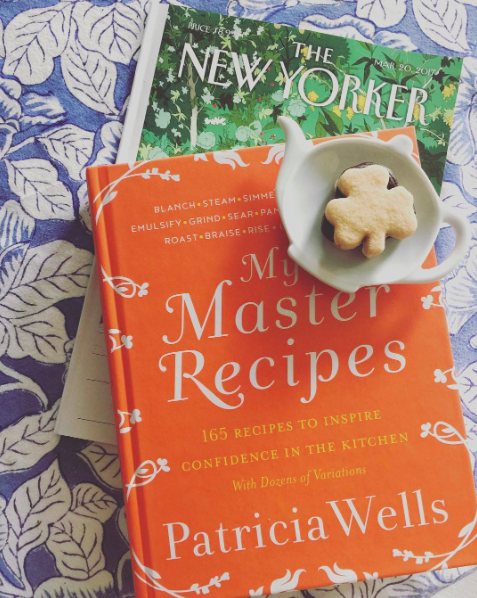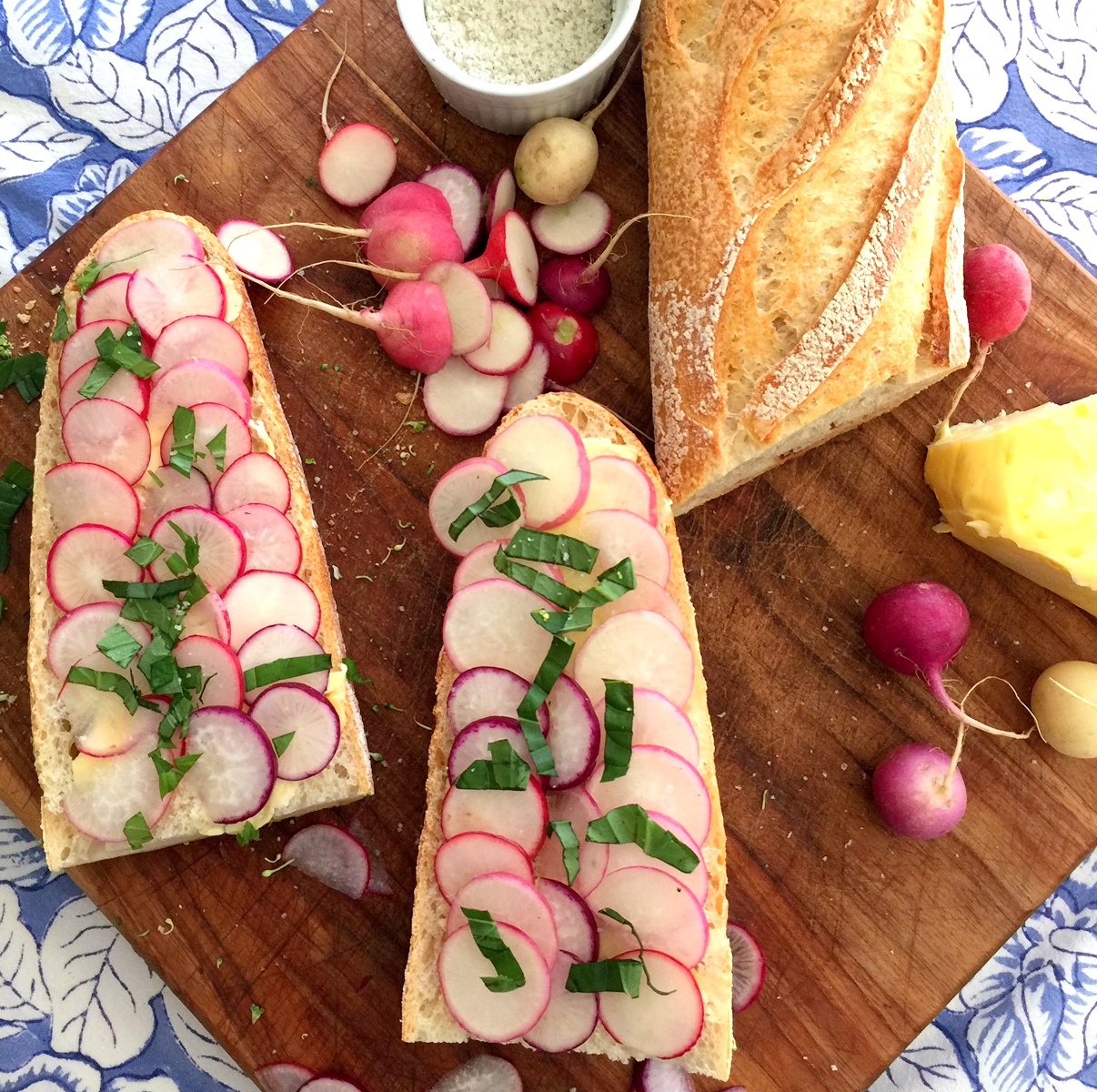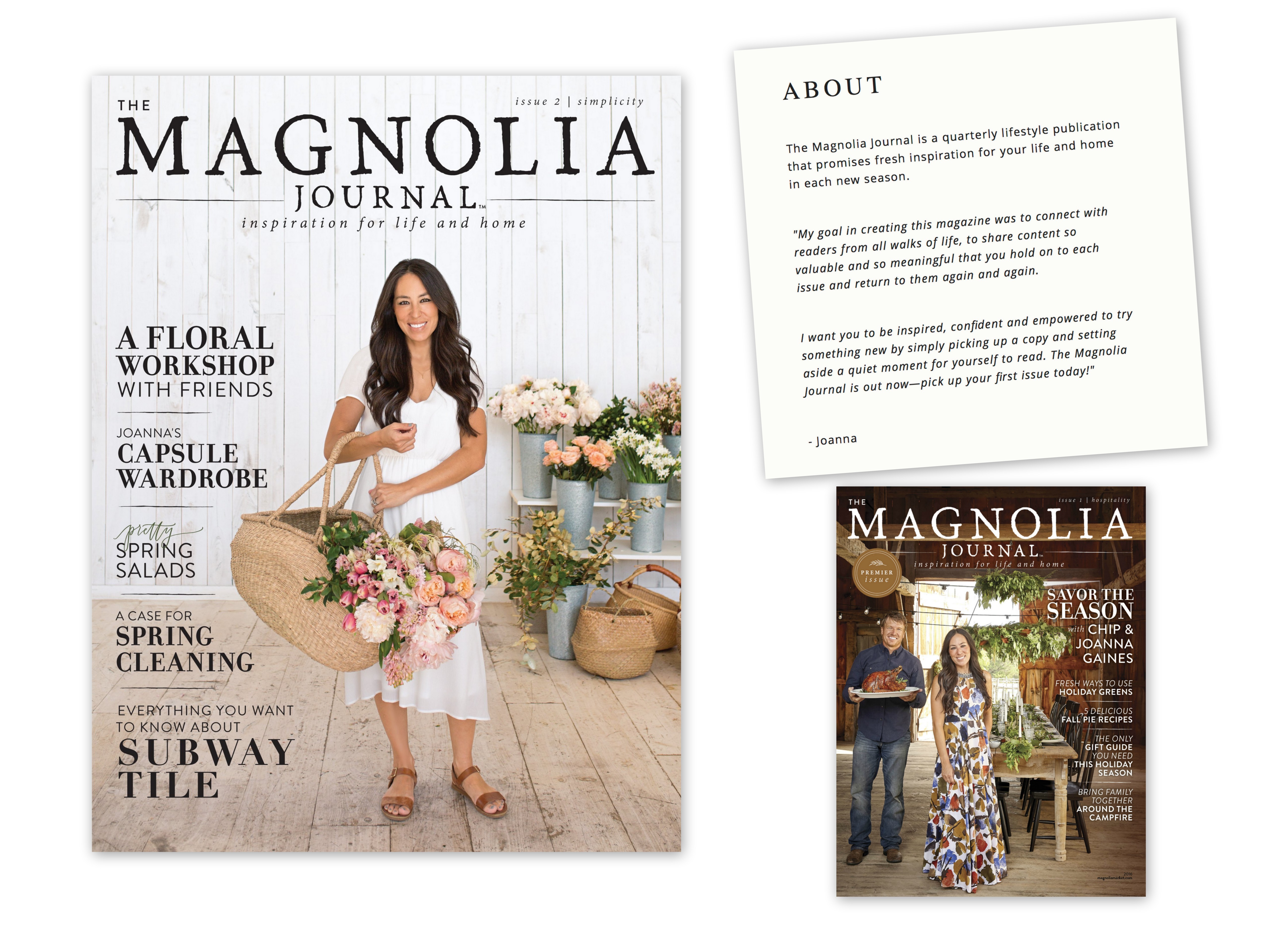Mon, 27 March 2017
~The Simple Sophisticate, episode #148~Subscribe to The Simple Sophisticate: iTunes | Stitcher | iHeartRadio"Man. Because he sacrifices his health in order to make money. Then he sacrifices money to recuperate his health. And then he is anxious about the future that he does not enjoy the present; the result being that he does not live in the present or the future; he lives as if he is never going to die; and then dies having never really lived." —Dalai Lama Most Sunday mornings at around nine or 10 o'clock you will find me in my living room having just returned from walking my boys, Norman and Oscar, settling in with a pot of black tea, a warm croissant from a local bakery and the Sunday newspapers. Such simple pleasures bring me a priceless amount of happiness, and I look forward to this weekly ritual as I tuck into bed each Saturday night. The recent trending term hygge (pronounced hoo-gah) in the lifestyle publishing industry springs from the happiest country in the world as found by extensive research compiled by the United Nations World Happiness Report. Simply defined, incorporating hygge into your way of living is a choice to encourage the enjoyment of life's simple pleasures. There are a multitude of books focused exactly on how to welcome a hygge lifestyle into your life out on the market at the moment (and these are just a sampling released in the past 12 months). Just take a look below: ~Hygge: The Danish Art of Living Well ~The Nordic Theory of Everything ~Hygge: 25 Secrets from the Danish Art of Happiness, Getting Cozy and Living Well
Needless to say, the attention to a way of life that welcomes in the simplicity and everyday savoring of pleasures and reminds of the gifts a welcoming sanctuary can bring into our everyday lives is something that tickles me immensely. Many TSLL readers have pointed out the similarities between hygge and living simply luxuriously, and after reading two books on the subject, I certainly have to agree. So how exactly do they overlap? How are they similar? Let's take a look: 1. Savoring quality in each arena of life:
2. Cultivating a sanctuary to relax, unwind and rejuvenate 3. Light a candle or two or three 4. Cultivating trust in those you love, in the communities you live and work in 5. Building a life that enables you to feel free, thus realizing you have more control over your level of happiness than you may have once assumed. In other words, you truly can become the CEO of your own life while building and being a partner in your community, home and work place. 6. A strong, respectful support system "meaningful, positive social relationships" 7. Practice gratitude, let go of want 8. Build and cultivate strong, healthy, loving relationships The quality of one's happiness increases with improved relationships, not surprisingly when we make more money. "America has gotten richer, a lot richer, over the past fifty years, but we've not gotten happier." —Jeffrey Saks author of the United Nations World Happiness Report 9. Become a lover of books Discover the pleasure reading can bring when a wide open afternoon, evening or 30 minutes anywhere in your day arises. Pick up a book, snuggle up and dive in to discover something new. Keep the television off, put your cell phone away and get lost, letting go of time. 10. Become a regular visitor of nature "Whether you are sitting by a river in Sweden or in a vineyard in France, or just in your garden or nearby park, being surrounded by nature enables you to bring your guard down and adds a certain simplicity." Meik Wiking 11. Choose to be fully present Put away the technology, allow your mind to be in the here and now and look around you. Savor the sun, savor the company, savor the flavor of the food. Savor the amazing life you have the fortune to be living. 12. Cultivate calm 13. Savor simple rituals The mindset of a market economy versus a social-democratic economy is at once significant and worth contemplating. Often, based on where we live and the culture we are raised in when we see our success based on how others fare as well: in a market economy, it is more likely to be an independent mindset, and in a social-democratic economy, it is more of a collective success one seeks. Ultimately, we only have control over ourselves, but to ignore how our behavior and decisions effect others is to ignore the power of emotional intelligence in our lives. When we consider others in our decision making, it is a means of paying it forward, of cultivating more wellness, kindness and positive behavior that builds each other up rather than tears one another down. 15. Seek internal approval rather than external Refrain from needing to wear labels or purchase more or larger homes, cars, shoes, clothing, etc. A mindset set on fine-tuning one's outer appearance is a person who has not found peace within. When you do have peace within, the external becomes far less important and the once temporary highs are substituted with permanent peace. The primary, underlying similarity that is at the core of living well, living simply luxuriously and thereby incorporating a hygge approach to life is to truly appreciate and savor the life we've each been given now. To drink the marrow from life so to speak every single day. It need not be excessive, expensive or grand. The true pleasures are actually quite simple. It is the moments of sitting next to those you love, letting go of time and letting go of worry knowing you are living well, you're living wisely and you haven't been pulled off track by the marketing masses that merely want your money when superficially they promise you more happiness. They are wrong, you are right when you choose to live in such a way that focuses on your well-being. And well-being cannot be purchased, it must be consciously cultivated, tended to and patiently fine-tuned. ~What Does a Simply Luxurious Life Look & Feel Like? Petit Plaisir:~My Master Recipes; 165 Recipes to Inspire Confidence int eh Kitchen by Patricia Wells |
Mon, 20 March 2017
~The Simple Sophisticate, episode #147~Subscribe to The Simple Sophisticate: iTunes | Stitcher | iHeartRadio"And you, you scare people because you are whole all by yourself." —Lauren Alex HooperThe twenty-first century woman, she has been called on this blog the modern woman, is an independent woman. And while there are many different shades, rhythms and ways of living independently, there are also many similarities. And some of these similarities are misunderstood by outsiders as they expect the traditional response when it comes to the arena of love or they have a misconception that because she is independent she must not want love in the traditional sense. Today I'd like to share 10 truths about independent women and dispel any innocent assumptions that simply aren't true. Love, whether it be romantic, platonic, a love for a passion that we pursue doggedly and without apology is an electric force that provides infinite fuel for life. Love is a necessity when it comes to living a life of fulfillment, contentment and reaching our full potential. And it is the goal of reaching our full potential that is solely at the core and what drives women who are independent. Because reaching our full potential is a unique and original pursuit, what we are looking for when it comes to love, romantic love especially will also be unique, but generally, these truths need to be understood by anyone wanting to be involved, currently beginning to date or having been intimately partnered for quite some time with an independent woman. 1. The enjoyment of her own company is real, but that doesn't mean she doesn't enjoy the company of others Alone time, great amounts or small is a absolute feast for her being. She revels in it, finds immense pleasure in it and doesn't need someone else to entertain her or keep her company. When she shares she will be spending the evening by herself, she will be spending the evening by herself because she wants to and her very busy schedule has bestowed upon her an opportunity that she is ready to savor. Introvert, extrovert, it doesn't matter. 2. When she gives or expresses love or affection, it is real Why? She won't waste time with games or ego-lifting flirtations. She is secure in who she is and doesn't need to drum up interest from others to reminder her of her worth. She knows she is worthy, and more importantly, she respects the feelings of others and doesn't want to lead them on. Because an independent woman relies on herself for her income and fulfillment, she is busy, she is driven and when she welcomes the possibility of a relationship into her life, she has done so thoughtfully. 3. Asking for help is difficult, but when she says she doesn't want it, listen to her An independent woman is willing to figure out her path and then get busy completing the tasks on her own that need to be done. She doesn't reach out and wait around for help. She may pay a contractor, a plumber, an expert in the field she needs assistance from, but rarely does she ask for help from others as she assumes and respects they have busy lives of their own as she does. However, don't be afraid to offer help. The primary reason, as mentioned above, she doesn't ask is because she respects your life and your schedule. She doesn't want to add one more task to your list, just as she doesn't need one more task on hers. Lastly, if you do ask, and she says no, she means it. She's okay with honesty, in fact she demands it and therefore, she practices it as well. 4. She is self-aware and therefore, will not hold on to a relationship if she doesn't see a future or it is a fit that simply won't work Speaking of honesty, she knows what she wants to accomplish. For the most part, she knows what it will take and what she can do. She also knows at this point in her life what works and very clearly what doesn't. And if the fit isn't right, she won't beat around the bush, hanging on to see and hoping that it will iron itself out. In other words, if you are in her life, she appreciates the connection and the partnership that is unfolding and sees potential for both parties involved. 5. Reaching her full potential is always at the core of her being As mentioned above, every woman's full potential will be different. The key is to not to assume anything. Have a conversation, have many conversations. Ask the questions, don't place the stereotype crowns on her head that Hollywood perpetuates. Ask her, does she want to become President, does she want to be a mother, does she want to travel the world helping those in need, does she want to become the next Oprah, does she simply want to write books, walk her dogs and revel in the love she has with her partner? Ask her what reaching her full potential looks like. 6. Friends may be few, but they are mighty The planner is full, goals are clear and days are often long, but she sleeps well and she is excited when she wakes up in the morning, thankful for the opportunities she has in front of her. Because of her full life, the friendships she builds are strong and provide support in one way or another. Quality over quantity as the need for strength is important, the need for trust is vital and with time on short supply, she wants to give fully to those she cares about. 7. Looking for an equal partnership Any relationship will ebb and flow based on the needs of the individuals, but the partnership an independent woman is looking for is not about fulfilling traditional roles. No. It is about setting each other in the relationship free to be themselves. A knowing by one another that there is a level of respect and appreciation for whom each is as an individual and a desire to help each other attain their fullest potential, knowing that the support the relationship provides is part of the equation. Thus, investing in the relationship is crucial. 8. Drama is for television shows and the theater The independent woman, if and when she has time, may watch House of Cards, but she doesn't engage in drama. She may enjoy the reprieve and escape momentarily, but she recognizes the unnecessary burden one puts on their shoulders when they involve themselves in drama with friends, family members and at work. An independent woman seeks to be productive, honest and clear. While she knows how to negotiate, she also understands that people have feelings and keeps this in mind when working with them professionally and personally. 9. Living together isn't off the table, it simply must be with the right person As someone who has never lived with a partner, my reasons were never due to statistics (read this article from The Atlantic), but rather because I simply didn't want to live with them which is probably why the relationships didn't last. Living together is an opportunity to connect more intimately, but only when the independent woman can trust her partner will be her partner, not her roommate, not someone who will add more tasks and chores to her list. In fact, living together, just as finding a partner that meshes well with you, should be an enhancement, not a burden to the life you already enjoy living. 10. We are looking for real love Living alone is a wonderful experience, and once this truth is realized, it makes it easier to determine if you truly are interested in someone. Why? To change or tweak the life that works exceptionally well for you is a significant decision. Needless to say, the person who provoked such contemplation must be someone unlike most others you have ever met. The key to living well no matter where you find yourself in your life is to enjoy your own company, and that is something independent women do exceptionally well. And when you enjoy your own company, you are demonstrating you are secure in who you are, your strengths and while you may not applaud your weaknesses, you are aware of them and don't let them hinder your progression (in fact, you may take time to address and improve them). And because you are secure and therefore self-confident, you are better able to recognize the same characteristics in others and quickly dismiss of those who are not, and therefore would not be compatible or able to be the partner you are seeking, if your are seeking one. The funny truth is, get on with your life. Get on with pursuing your goals and reaching your full potential. Get on with living and living well. Whether you intrigue someone or not shouldn't be the goal. The goal should be internal. Julianna Margules famously shared on CBS Sunday Morning that at the age of 35 she told her mother she didn't want to get married or have kids because she loved her freedom. Epitomizing the independent woman, she lived her life and in so doing she met her husband at age 39 as she was going about living the life she loved, never with the goal in mind to meet him. Real love enters our lives in a variety of ways: through our careers, children, pets, hobbies, service, families, our partner, etc. But it should always begin with having sincere love and appreciation for ourselves. And independent woman understands this. She may struggle with who she is becoming as it is new and seems to regularly be changing as she grows and strives, but once she figures out who she is at her core, that truth doesn't change. And knowing that truth brings a comfort and a sanctuary that nobody can take away. ~SIMILAR POSTS FROM THE ARCHIVES YOU MIGHT ENJOY: ~How to Become a Woman Comfortable in Her Own Skin ~Why Not . . . Live Alone for a While? ~Why Not . . . Revel in Being a Woman? ~View all FEMININITY Posts in TSLL Archives here. Petit Plaisir:~Radishes with Baguette, Butter and Salt - click here for the recipe
Direct download: 147IndependentWomanLove_-_31917_1.41_PM.mp3
Category:relationships -- posted at: 1:00am PDT |
Mon, 13 March 2017
“Life is really simple, but we insist on making it complicated.” ― ConfuciusHaving never experienced a particular event, feeling or sensation, it can be hard to trust that attaining what we have marked as our goal as something other than difficult to achieve. After all, if it were easy, we would have experienced it by now. But what has lacked in the past is the proper recipe. What I mean by the proper recipe is if we are trying to make mayonnaise (which requires few, but specific simple ingredients: 1 large egg yolk, 2 teaspoons lemon juice, 1 teaspoon Dijon mustard, ¼ teaspoon kosher salt, 1 teaspoon cold water, and ¾ cup neutral oil such as safflower or canola), but if we pulled out a recipe for a vinaigrette (extra virgin olive oil, Dijon mustard, balsamic vinegar and black pepper), no matter how hard or long we whisked the ingredients, we will never make mayonnaise. This seems obvious, but often in life we are using ingredients (whether it be particular people, misunderstood facts regarding science, neuroscience and biology or confusion when it comes to math) that cannot add up to what we desire no matter how hopeful we are. But when we do finally have the proper ingredients, in other words quality ingredients and stop trying to force an apple to become an orange, the results we desire materialize without involving much effort. And in that moment it seems almost miraculous as we've been thwarted for so long so often in our previous attempts. Today I've made a list of eleven life skills I have found to be far easier than I had once thought. Perhaps you have a few others you would like to add. And if so, please do share in the comments. On Sunday I made my first Niçoise salad, and of course, boiled eggs are a quintessential ingredient. Wanting a boiled egg in which the white was solid, but moist and the yolk was runny, I looked to Julia Child. On page 118 in her iconic Mastering the Art of French Cooking, the recipe for an alternative to poached eggs (as I wanter to cook the eggs with the shell on) can be found. Put simply: bring water to boil, place eggs in the boiling water for six minutes, pour out the hot water and run cold water over the eggs for one minute. The perfect boiled egg for salads, breakfast or a mid-day snack. View my recipe for soft boiled eggs and soldiers here. 2. Meditating For years I thought something was wrong with me for not being able to mediate. I assumed, errantly, I had to be able to sit without thinking for endless amounts of minutes (20-30). I was wrong on two points: It's not about stopping your thoughts, but recognizing when they wander and bringing your mind back to the present and longer doesn't mean better. Five minutes is fine, simply observing and knowing your mind is wandering is a significant and successful mediation experience. Learn more about who to incorporate mediation into your daily routine (even if daily is a hope and the reality is a few days a week - the difference is quite positive on your overall quality of life.) 3. Asking clarifying questions Just ask why. Most likely you are not the only person in the room who did not understand the allusion the speaker or teacher made. Ask for clarification. Don't apologize for not knowing, simply ask what they were referring to. Confidence of a student and their sincerity to learn is revealed in asking for further understanding. Be a student of life and regularly ask questions, especially of people who are experts in their fields. Even if they do not know the answer, they would be the best persons to point you in the right direction. Often an expert takes for granted what the listener knows. It's not a negative thing, it's a reality when someone has been working with a particular idea or content for some time. Their perspective has shifted. So simply ask, and no doubt others in the room will appreciate your courage. 4. Letting go of what no longer supports the life you are building Looking at the possibility of letting go of a way of life, a person, a job or anything that you have become accustomed to is a thorny prospect. But the actual letting go and moving forward is easy. It's the decision of what to let go that takes time and careful examination. For when you finally let go, it cannot weigh you down and you begin to feel a lightness that you could never have known prior to letting go. 5. Welcoming love into your life When we have been mistreated, taken advantage of or been around insecure individuals and errant assumptions about what love is (co-dependent, needy, clingy, formulaic, etc.), we can understandably be cautious about believing genuine love exists. Genuine or real love is something we discussed here and here in-depth, but the good news is that it does indeed exist, and when you're ready and able to recognize it, even if you don't believe it when you see it or experience it, welcoming it into your life is easy. Put down the armor, put down the cynical protections you've been using, stop the mishegas thinking and let yourself be loved. Just be you. Stop assuming the worst, stop thinking about anything that may thwart love's growth, and when you do that, love walks in. 6. Broadening your vocabulary Read. Read often. Read a little every day from any source that piques your interest. Look up one word a week that you run across and do not know. Listen to the diction being used in academic, political, historical films, newscasts and productions. Be curious and read and watch and look up what you do not understand. The more precise your vocabulary, the better able you are to effectively communicate and the more heightened your ability for emotional intelligence. 7. Backgammon My favorite board game to play is backgammon. While I have always wanted to learn chess, I have yet to do so (of this feat I will accomplish at some point in my life, I am nothing but determined). But since I was a young girl, backgammon was the game my father and I would play, and we still do when I return home for holidays. It's simple: move all of your checkers to your home base and remove them before the other player. Yes, there are other strategies and details to consider, but for a board game that looks fancy when it is displayed, it truly is quite simple. Discover the rules here. 8. Saving money for retirement Set it and forget it. Set up an automatic pay reduction each month to be withdrawn from your paycheck. The sooner you do this is your career, the less you will pay no mind to the money that is not going into your checking account for the present moment. 9. Practicing self-compassion The patient is you. And the attending is you as well. Treat yourself the way you already treat those you care about. The love you are able to give outwardly becomes strengthened when you have been giving the same compassion to yourself regularly. Learn more about self-compassion here in episode #122 of the podcast. 10. Improving your health and your skin Yes, using particular moisturizers, sunscreen and oils do indeed make a difference, but the cheapest and simplest way to improve your health (ridding your body of toxins) and enable your skin to look radiant is to drink a glass of water before you go to bed and when you wake up. In between, make water your drink of choice. Hydrate, hydrate, hydrate. 11. Staying healthy and trim It's less about your activity and more about the fuel you feed your body. However, physical exercise reduces stress and keeps the mind balanced. Back to the eating component: Eat a well balanced diet (knowledge of what you eat and what it does for your body is key), don't deprive yourself, moderation. And as far as exercise, simply walk 5 times a week 20-40 minutes, add some weight bearing exercises two times a week (strength, pilates or yoga). The take away I have discovered is often it is our approach that is thwarting the success, happiness and contentment we seek from materializing. And the problem is that we are not better informed on how to actually attain what we seek. Make sure that anything that is not working at the moment doesn't actually have an easier solution. Are you using the proper ingredients? Do you have the right recipe or did the pages stick together and you, like Rachel in FRIENDS accidentally make a dessert truffle with ground beef? The right recipe can make all of the difference. ~SIMILAR POSTS FROM THE ARCHIVES YOU MIGHT ENJOY: ~Small & Simple = A Grand & Full Life Petit Plaisir~Victoria on PBS, Season 1~Queen Victoria's diaries made available to the public
https://youtu.be/rKONm_Cy39s
Image: source
|
Mon, 6 March 2017
~The Simple Sophisticate, episode #145~Subscribe to The Simple Sophisticate: iTunes | Stitcher | iHeartRadio"The act of responding requires one to look at the circumstance, identify the problem or situation, hear what is happening and reflect . . . What matters is that you stopped and put an effort to think and suspended judgment. It is a conscious act and shows that you are willing to listen or observe. This ‘gap’ between the circumstance and your behavior is what contributes to gaining a sense of control in your life." —author Debbie Hampton Responding thoughtfully to an interviewer's questions versus reacting spontaneously to an inflicted, unexpected pain whether a paper cut or something more severe. The physical examples shared reveal the human responses: the former - responsive, and the latter - reactive. Responding is a conscious decision whereas reacting is instinctive and done without forethought. And while reacting in emergency situations involving life and death, to scream, run and protect one's self is primarily and understandably about survival, it is when we react rather than respond in everyday situations that we inhibit the potential outcome. Let's look at it more closely. When we choose to simply react to what occurs in our lives, we behave defensively. Sometimes defensive behaviors take the form of blame, scapegoating or taking revenge. Stephen Covey describes the difference between reactive and responsive individuals quite well. “Reactive people are often affected by their physical environment. If the weather is good, they feel good. If it isn’t, it affects their attitude and performance. Proactive people carry their own weather with them.” In essence, choosing to be responsive versus reactive is to take charge of your life, to be the hero/heroine, to be the person who recognizes everything will never be in our control, but our response to circumstances is. Choosing to be responsive is taking responsibility of our lives. Recognizing the power of our words, our behavior, our tone, our delivery, our volume, our timing, make a difference to those in our presence. On the other head, when we react we actually aren't choosing. Rather we are allowing our reptilian brain, the oldest part of our brain, to take control. The reptilian brain is all about the individual and survival: movement, breathing, circulation, hunger and reproduction, territory, and social dominance. But the gift that humans have as well as other highly evolved mammals, is we have two additional brains: the mammalian brain or limbic system, which is highly reactive as it is subconsciously responding to temperatures and hormones thus involves our emotions and feelings, and the neocortex, the thinking part of the brain, in other words where our capability to respond rather than react derives itself. The third brain, as was just mentioned, the neocortex, is the key to gathering information from what we are seeing and feeling, and putting it into context. The neocortex digests the necessary information, understands the world and the fact that there is a future beyond this moment and is capable of making sound decisions. Humans's neocortex is the most highly developed of all primates, and therefore, when we recognize what we have the potential to do, we must utilize this amazing strength of mind. Let's take a look at what responsive vs. reactive looks like in our everyday lives: ~Event: you sleep through your alarm - responsive: edit out timely morning rituals, access what the necessities are to be your best at work (eat well, dress appropriately, look presentable); reactive: scurry furiously around the house setting a mood for anyone in the household to become more frazzled and storm out the door with nothing complete or having prepared you efficiently for the day. ~Event: a colleague or boss states something unexpected that takes you aback or hurts your feelings - responsive: choosing to pause and take a breath you think about the best response, if one is needed at all, and do so calmly; reactive - fall back on your default response to critical, hurtful comments and either don't stand up for yourself and continue to agree or become snarky and sharp in your retort. ~Event: your significant other forgets an important date or occasion - responsive: collect your thoughts, come to understand why or if you feel hurt and determine how to calmly express how you feel during a time when both can talk; reactive - as soon as you see or hear from them you either give them the cold shoulder or speak with a hurtful tone and words. ~Event: a friend texts or emails to invite you do something - responsive: read the text, assess your interest and then consult your calendar or other people's calendar if it involves or effects them, then return the text/email either way; reactive: either respond immediately or not at all ~Event: the line at the grocery market is long and the person at the counter doesn't appear to know how to work the machine - responsive: assess your situation - do you have a time constraint? If so, can you move to another line. If time isn't an issue, observe the wait in line as an opportunity to take a few deep breaths, relax or check your email recognizing that either eventually the line will move or the management will open another line. The paradox of choosing to be responsive is that it requires of us to be both present and aware of the future. We need to both be cognizant of the effect of our actions, whichever we choose to take and we need to know what actions are best in the situation. Fittingly, when we react, we are reacting out of fear based on what we have been genetically disposed to do to protect ourselves. But as we know, we live in a civilized world. It is a civilized, thoughtful approach that will yield us the best results. It is not easy to know how to respond best in every situation. However, being self-aware and emotionally intelligent help tremendously. As these two traits are skills, so too is knowing how to respond well. It will take practice, it will require of us to be able to pause in nearly any situation before speaking or acting, and in its own small way, meditation plays a helpful role as well. When we respond to life:
No doubt all of us, and I know I can include myself in this category, have reacted at times in our lives when we should have responded. And upon reflection, we can probably pinpoint those events quite well usually based primarily on how we felt after we reacted rather than responded. We may have wished we wouldn't have said something, chosen a different tone, or taken a deep breath and simply removed ourselves from the situation until we knew how to respond well. It is just these moments of experience that will actually make it that much easier to respond rather than react as you move forward. Because when we know first-hand the negative experience that can result from reacting, we are far more motivated to make sure we respond in the next similar situation. Our lives provide guidance even through the moments we wished we didn't have to endure. As a student, all we have to do is vow to learn the lessons we are given. We cannot know how to do something until we are shown how. Now we know how to respond rather than react. Now we know the difference and the benefit of embracing responsiveness versus defensiveness. Petit Plaisir:~The Magnolia Journal: Inspiration for life and home
~Joanna & Chip Gaines of HGTV's Fixer Upper ~The bed & breakfast in Walla Walla, Washington, mentioned in today's episode: Green Gables Inn |
The Simple Sophisticate - Intelligent Living Paired with Signature Style

Categories
lifestylemoney
fashion
general
food
relationships
beauty
holidays
style
decor
etiquette
technology
dating
clothing
news
happiness
health
finances
self-help
feminism
french living
communication
inspiration
self-improvement
cooking
French-inspired
podcast
travel
entertaining
Archives
AprilMarch
February
January
December
November
October
September
August
July
June
May
April
March
February
January
December
November
October
September
August
July
June
May
April
March
February
January
December
November
October
September
August
June
May
April
March
February
January
December
November
October
September
August
July
June
May
April
March
February
January
December
November
October
September
August
July
June
May
March
February
January
December
November
October
September
August
July
June
May
April
March
February
January
December
November
October
September
August
July
June
May
April
March
February
January
December
November
October
September
August
July
June
May
April
March
February
January
December
November
October
September
August
July
June
May
April
March
February
January
December
November
October
September
August
| S | M | T | W | T | F | S |
|---|---|---|---|---|---|---|
| 1 | 2 | 3 | 4 | |||
| 5 | 6 | 7 | 8 | 9 | 10 | 11 |
| 12 | 13 | 14 | 15 | 16 | 17 | 18 |
| 19 | 20 | 21 | 22 | 23 | 24 | 25 |
| 26 | 27 | 28 | 29 | 30 | 31 | |
Syndication










